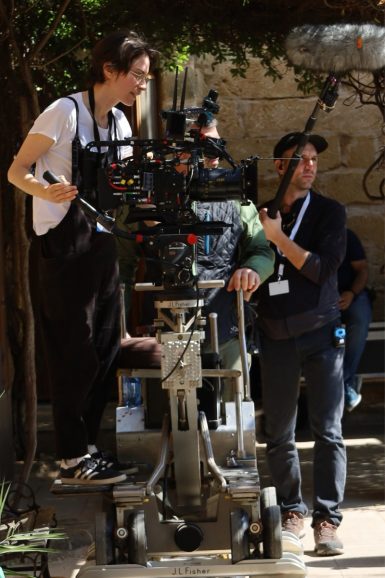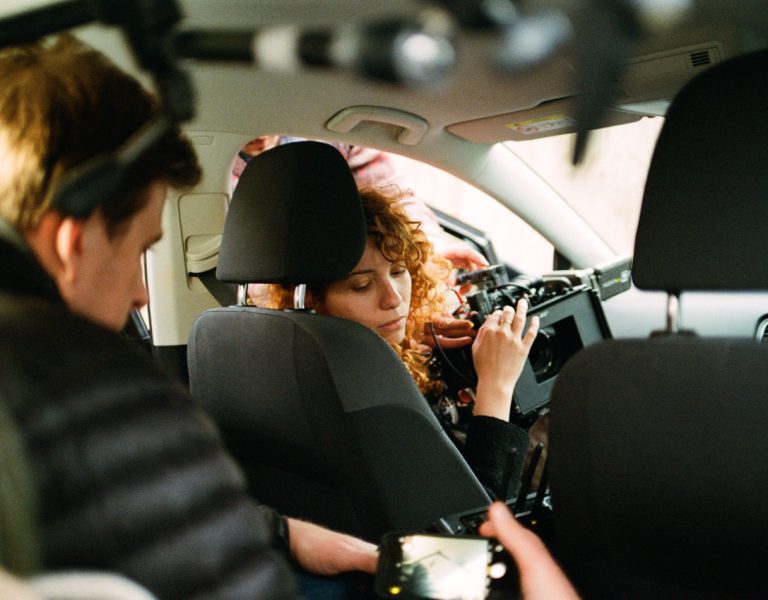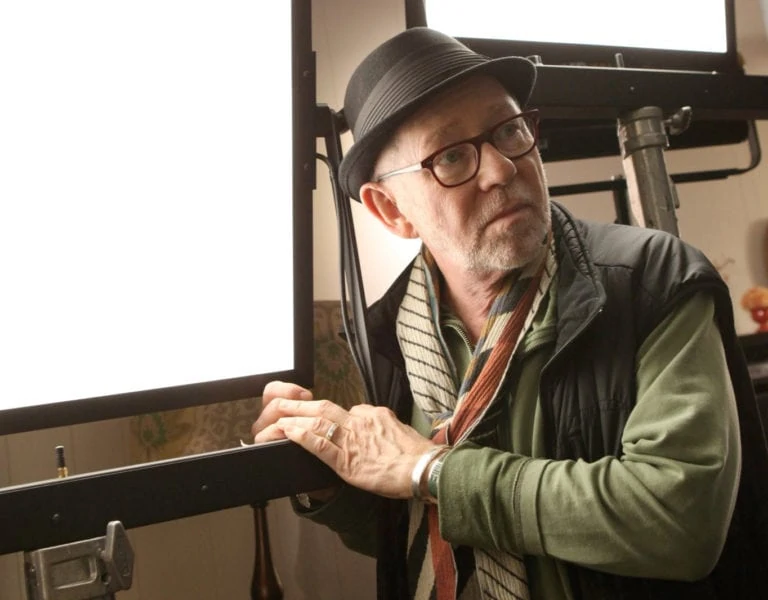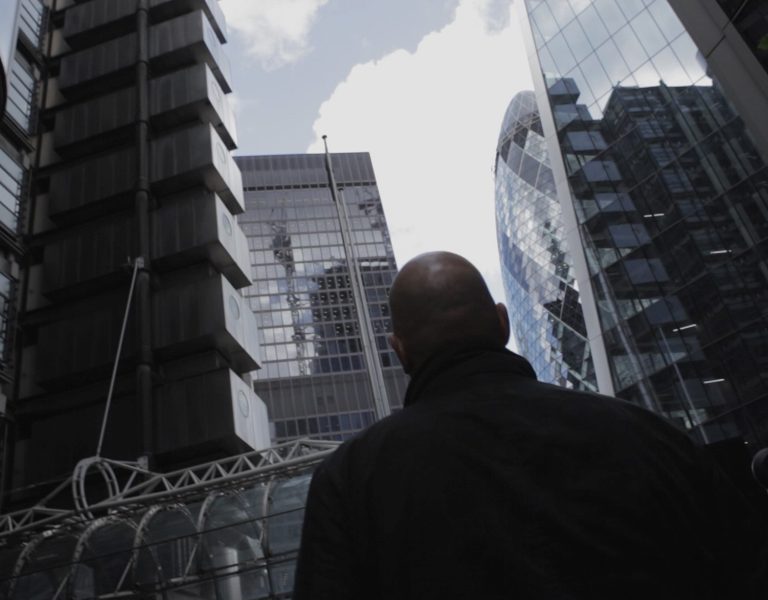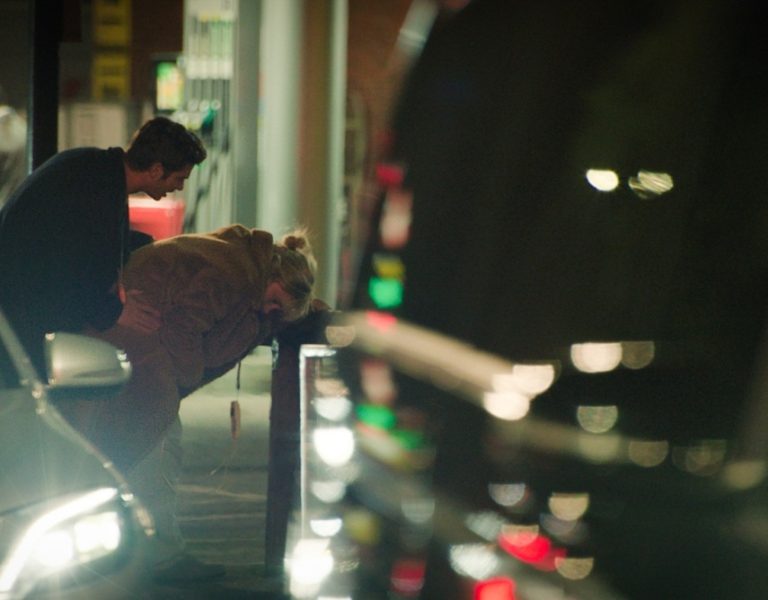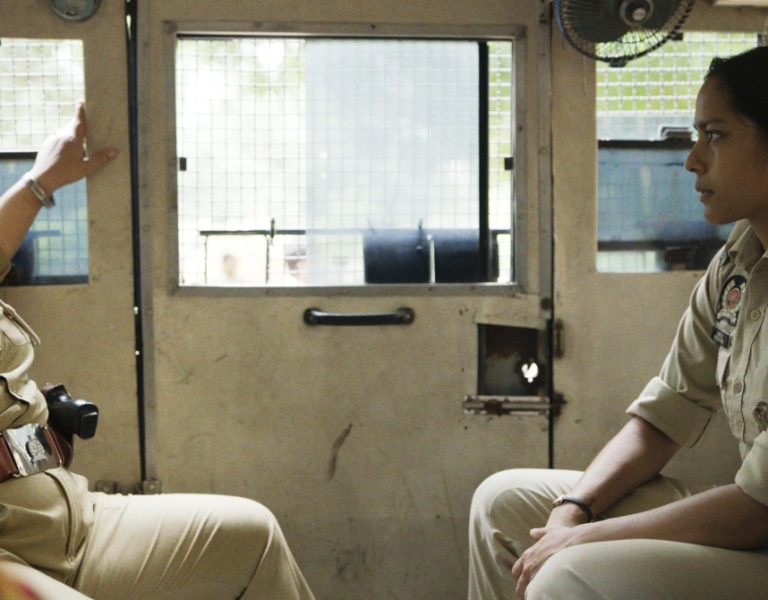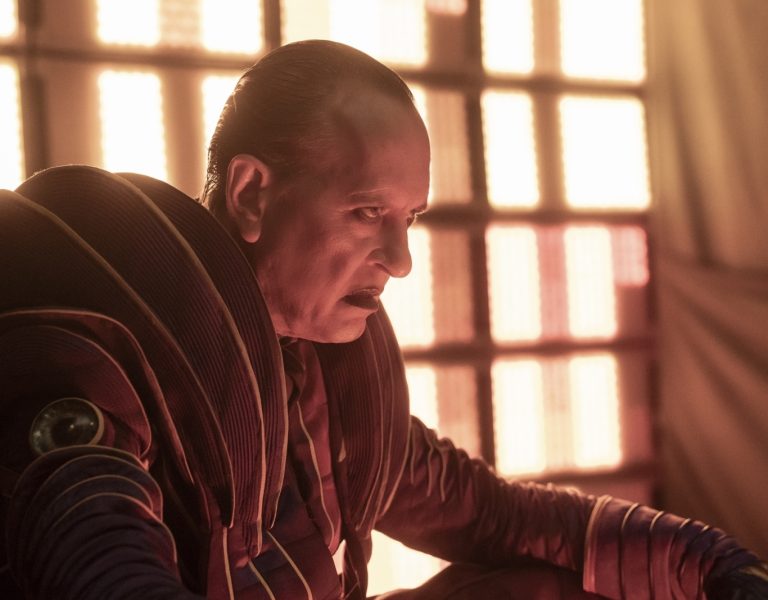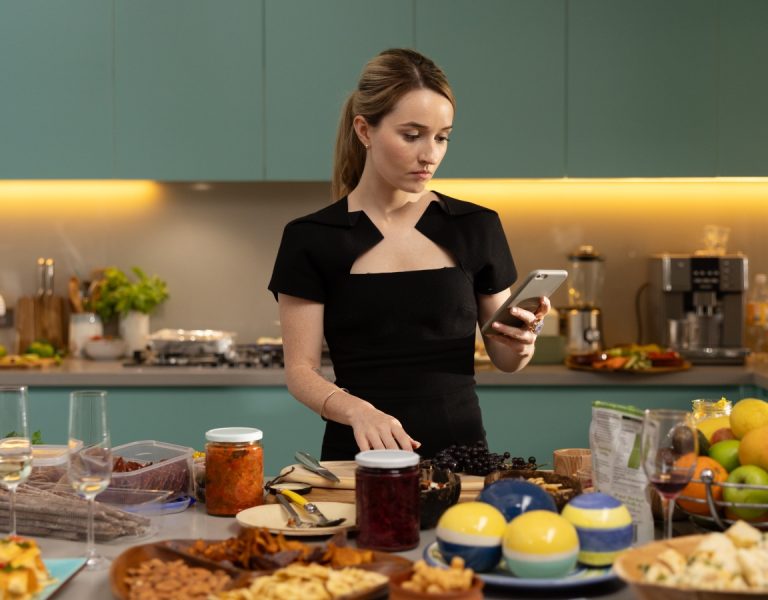TALKING PAGÈS
Filmography so far (project title, director, year released)
Feature Films:
- Under the Stars (second unit DP) – Michelle Danner (upcoming)
- Greatest Days (second unit DP) – Coky Giedroyc (2023)
Short Films (selection):
- Truth Serum - Vika Evdokimenko (2024)
- Dog Run - Lorna Nickson Brown (2023)
- Ceres - Amelia Sears (2023) LFF 2024
- Tótem Loba - Verónica Echegui (2022) Winner Goya Award Best Short Film
- Groom - Leyla Josephine (2022) Nominated for a Bafta Scotland
Commercials: Hermès, Fendi, Calvin Klein, Zara Home, Harry’s House, Miu Miu, The North Face, Google, Liujo, Alberta Ferretti
When did you discover you wanted to be a cinematographer, and what inspired you to follow this career path?
After participating in a film workshop during my high school years in Spain, I fell in love with the art of cinema. I saved enough money to buy a camera, with which I shot my first short films and music videos. I fondly remember those projects that I directed, photographed, and edited. I immediately realised that what I enjoyed the most about the whole process were the moments spent behind the lens, making the decisions regarding language, lighting, and framing that allowed me to express the emotions I was seeking. Then I discovered the role of the cinematographer, and I instantly knew what I wanted to do.
The filmographies of Wong Kar-Wai and Krzysztof Kieślowski reaffirmed my decision to become a director of photography.
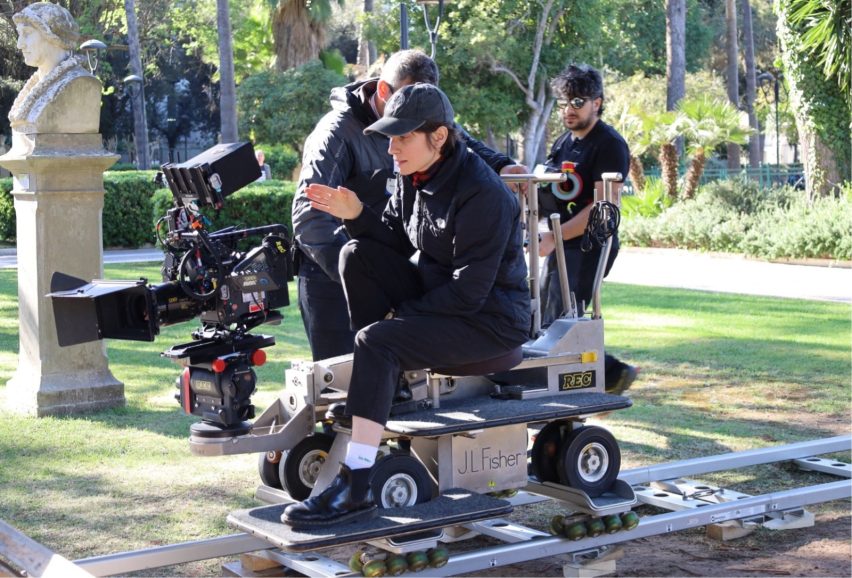
Where did you learn your craft?
After studying media studies in Spain, I moved to London with the idea of doing a master’s in Cinematography. I was aware that I needed to build up my narrative reel, so I decided to start working as a camera trainee to get experience on set, whilst shooting as much as I could on the side.
I learned so much on set that it basically became my film school. I was so hungry to learn. I was always taking notes, asking questions of the cinematographers and gaffers. I have been fortunate enough to encounter great professionals along the way who have always given me excellent advice and supported me.
Whilst working on my personal projects, I learned by trial and error, shooting as much as I could, even if that meant not having a day off. I am very grateful for those years, even though it was hard work, as it definitely was worth it.
What are your favourite films, and what makes them stand out to you?
Carol - Todd Haynes (2015)
It’s an emotional journey and an intimate portrait of a “forbidden” love, lost and found through an exquisite dance of glances, perspectives, and reflections, beautifully captured on 16mm by cinematographer Edward Lachman ASC. It reminds me of the melancholic photography of Saul Leiter. Its constantly evolving language and delicate intimacy are touching and inspiring.
Pride and Prejudice – Joe Wright (2005) (cin: Roman Osin BSC)
Unlike other period dramas, this adaptation of Austen’s classic novel is vibrant and bold. The camera dances with the characters, offering the audience a question every time it stops. The colours are as vivid as the mischievous girls in the family, and they evolve gracefully as different emotions begin to set in. The film boasts beautiful landscapes and inspiring camera movements throughout. It is boundless and intimate in equal measure.
Manon des Sources - Claude Berri (1986)
For me, both Jean de Florette (the first part of Marcel Pagnol’s series) and Manon des Sources should be studied in film schools. In addition to its beautiful imagery, provided by the landscape of French Provence, what makes this film stand out is the powerful emotional journey of the characters. From revenge and contempt to love and forgiveness.
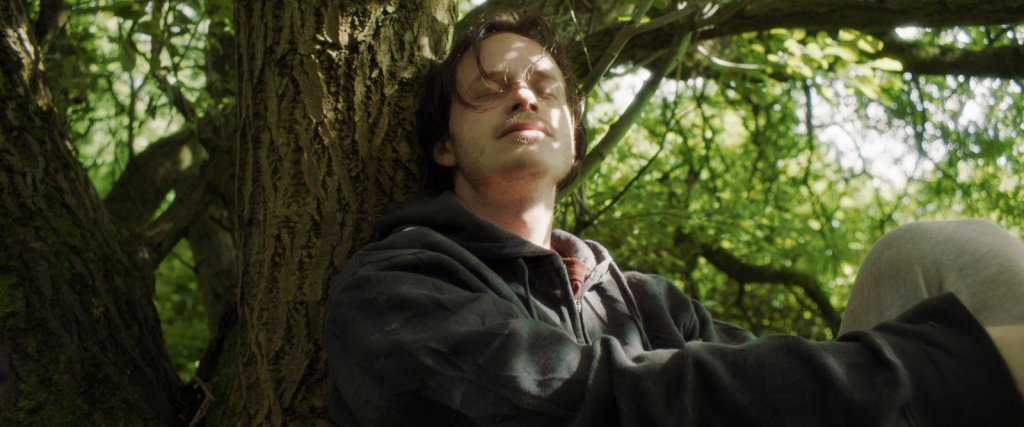
Who in the film world inspires you?
I find inspiration in the legacy of French writer and director Marcel Pagnol. His passion and eloquence in expressing and illuminating the different realities of this world through his ever-evolving characters is nothing short of inspiring. Above all, Pagnol uses his work to illustrate the importance of human bonds and their renewal. His stories and approach are a harmonious fusion of hope, love, and possibilities that I appreciate deeply.
What’s the most useful advice you’ve received, and from whom?
A close friend of mine once told me, “Your job is not your life”. I was so passionately involved in my profession that I was forgetting the most important thing in life: to live!
As much as I love my work, in the end, it’s just a wonderful profession that allows us to pass on beautiful messages. Over the years, I have learned that the most important things in life are the relationships we develop with others and how much we share with them.
What advice would you give someone considering becoming a cinematographer?
Shoot, shoot, and shoot. Your mistakes will teach you the way. Listen, observe, and ask questions. Follow your heart and don’t forget to smell the flowers.
What have been your greatest triumphs and disasters on set?
I can’t think in terms of triumphs or disasters. On set, I experience moments of pure beauty and joy—those unique moments when everything just clicks and all the hard work comes together in a poetic way. But I also value the times when I have learned something “the hard way”. What some may call disasters are, for me, valuable lessons that have helped me reflect and grow, both professionally and personally.
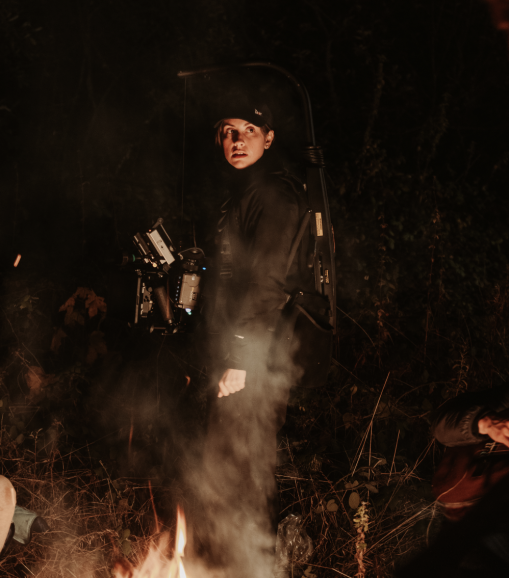
What lights your fire outside of work?
I spend as much time as I can lost in nature. I am constantly inspired by its greatness. I also enjoy playing my guitar and singing for my loved ones, as well as watching a good film.
What has been the biggest challenge in your career, and how did you overcome it?
Transitioning from AC to cinematographer took courage and hard work. After years of assisting and shooting on the side, I felt stuck. I knew I had to change my approach, as having the safety net of my assistant job was keeping me in a comfort zone I needed to break in order to achieve my professional dreams.
I trusted my instincts and decided to stop assisting. I remember the uncertainty of those days, but I just kept shooting, learning, and pushing myself until my body of work could speak for itself.
What piece of kit could you not live without?
My heart is the “tool” I trust the most. On a technical level, the Cadrage (viewfinder) app. It allows me to communicate my ideas quickly with the director and the rest of the team.
Which film would you love to have shot?
Technically speaking, Portrait of a Lady on Fire by director Celine Sciamma. Its cinematography is extremely delicate and precise. Every frame reminds me of a Renaissance painting, where the light seems to come out from the characters themselves. Beautiful cinematography by Claire Mathon AFC, even though it features yet another unnecessary tragic ending for women in love.
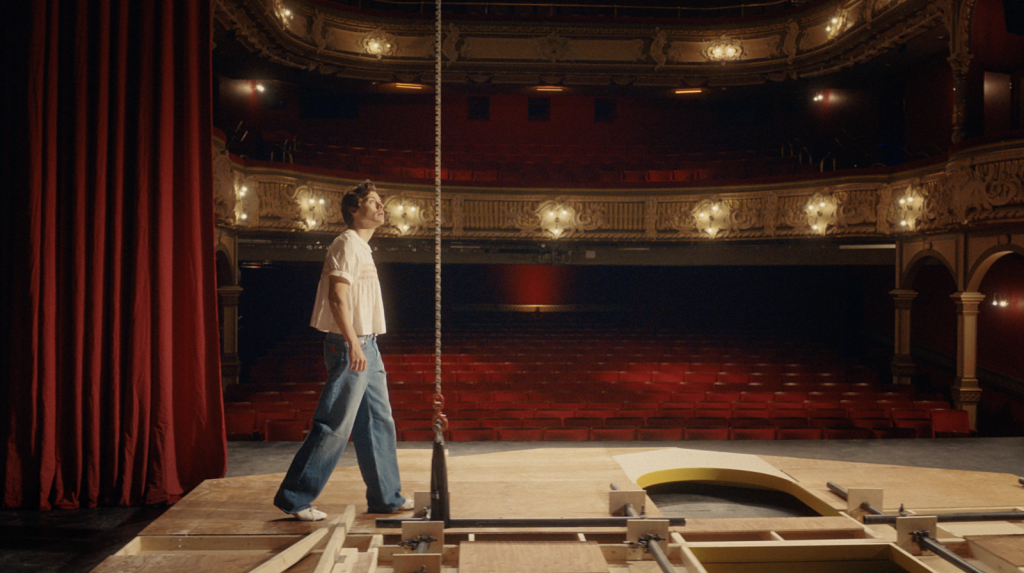
Which productions are you most proud to have lensed, and why?
The short film Dog Run was my second collaboration with director Lorna Nickson Brown, and from the beginning, our goal was to make sure the audience felt what our main character was going through and experienced his perspective shift. We achieved that through a very carefully crafted visual language that translated into many eye-watering moments behind the camera. Lorna had envisioned shooting the film over the course of a year through the changing seasons. Returning each season to capture new emotions provided by different lighting and landscapes was a wonderful experience.
What’s the best and worst thing about your job?
I couldn’t choose just one best thing. I’m passionately driven to create the visual language of a film, collaborating closely with the director and the rest of the departments. Being able to show and express a certain feeling through images, and to travel the world telling stories, is such a rewarding experience. On the other hand, this is a demanding industry with long working hours. Over the years, I’ve learned to take good care of my mental and physical well-being. To stay match-fit, I don’t do drugs, I eat healthily, and I spend as much time in nature as I can.
How would you best describe your approach to cinematography?
In a few words: intimate, natural, emotional, honest.
What are your aspirations for the future?
My main aspiration is to tell stories that deliver a powerful message of hope and beauty in a world that so often lacks both.
What do you think are the industry’s biggest challenges?
There is an increasing tendency to make horror and violent movies that only encourage people to detach themselves even more from reality. I would like to see more of those innocent, hopeful, and profound films from earlier days.
